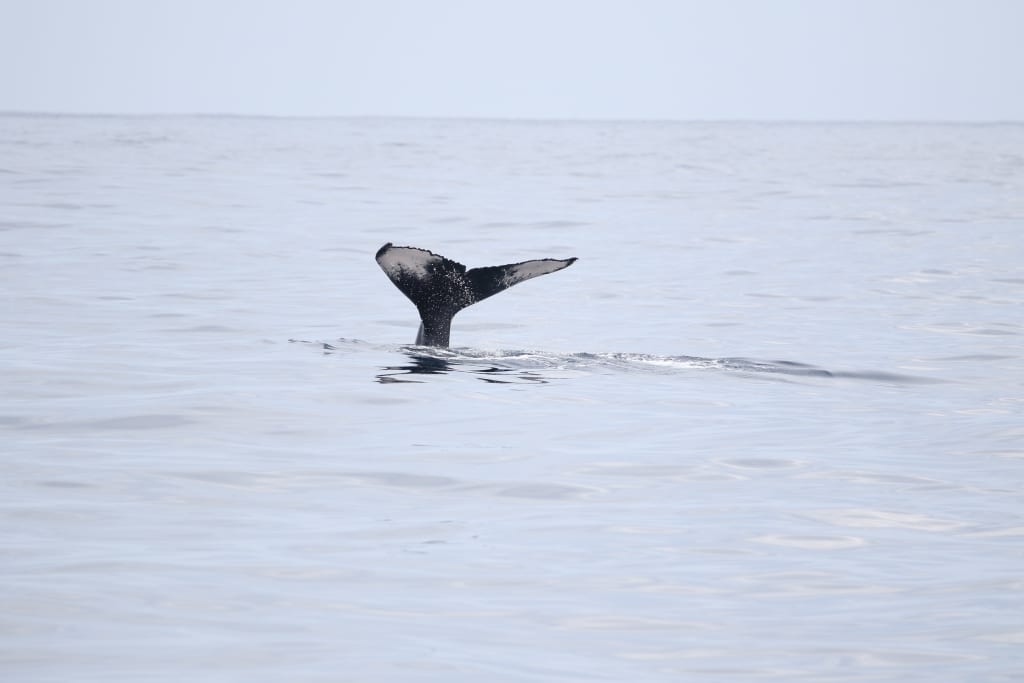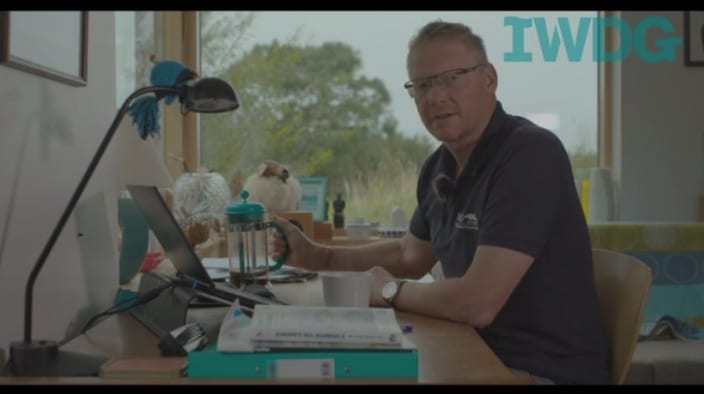The main purpose behind this Septembers survey is collaboration between IWDG, Bios.CV, ECOCV, Edmaktub Association and the Swiss Whale Society #IWDGCVI
13 September 2019
After two weeks, we arrived back to Sal Rei on Boavista last night after a long 16 hour passage from Santiago. The wind was more north than east which meant a lumpy sea. However we had 5 sightings, the most from any day so far including dolphins, pilot whales and a group of 3 beaked whales. As we clear customs and say goodbye to colleagues in Sal Rei before the final leg to Sal tomorrow its an opportunity to reflect on the survey.
Sightings
We had a total of 33 Sightings of at least 6 species of cetacean. Most sightings were of Pan-Tropical Spotted Dolphins, with sightings of bottlenose dolphins, short-finned pilot whales, melon-headed whales and beaked whales (all unidentified) as well as a solitary humpback whale sighting. Possible sperm whale off Fogo and some Mantra Rays too.
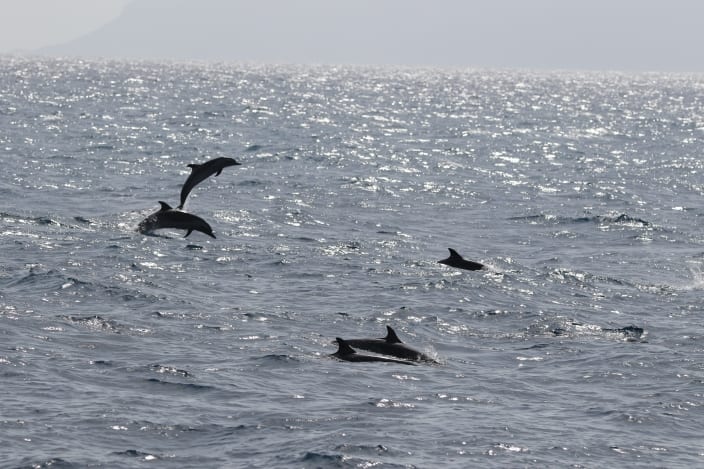
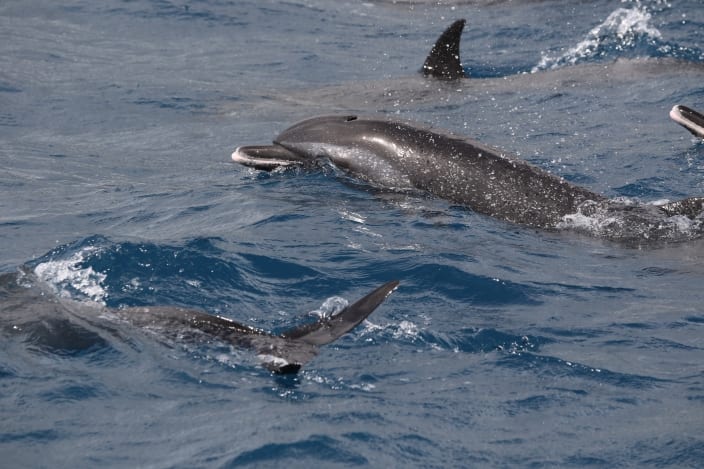
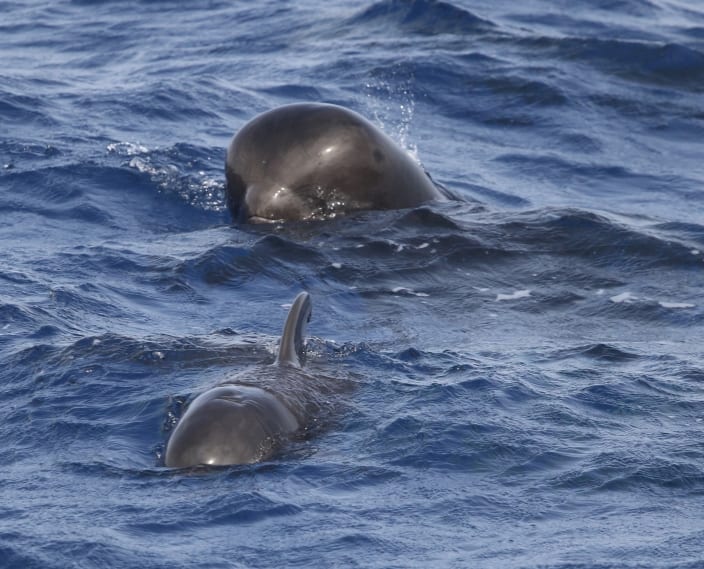
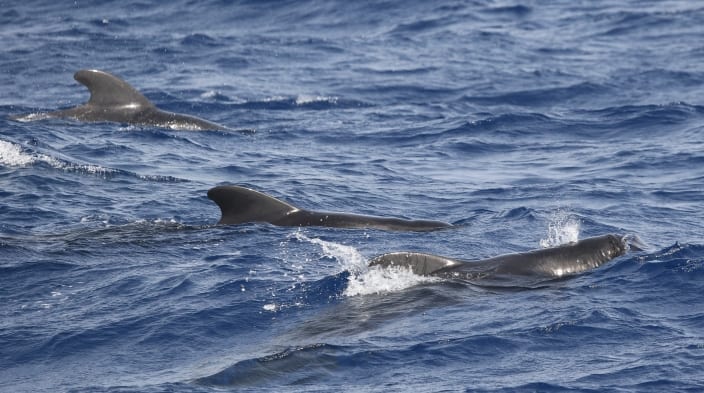
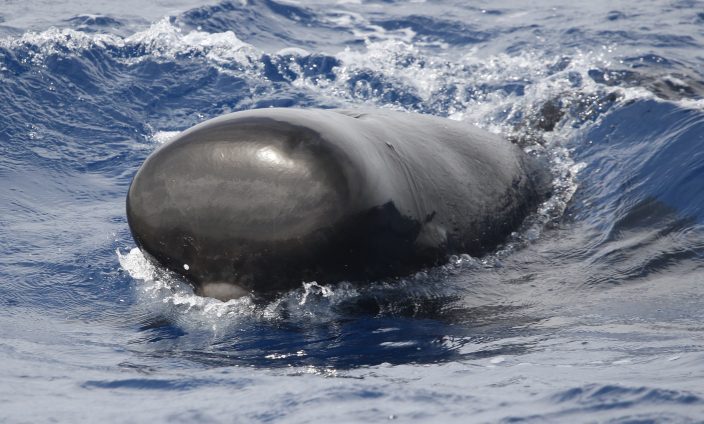
We surveyed the waters around Fogo and Brava islands, in great seastate; an area we have not surveyed before. Plenty of dolphins around these iuslands, and a first sighting of bottlenose dolphins. We obtained photo-id images to start a Fogo BND Photo-id Catalogue.
We had four sightings of beaked whales, but most were big splashes in the distance. we encountered a group of 3 on passage to BoaVista from Santiago and obtained a picture, but we are still not sure what they were, most likely Gervais beaked whale.
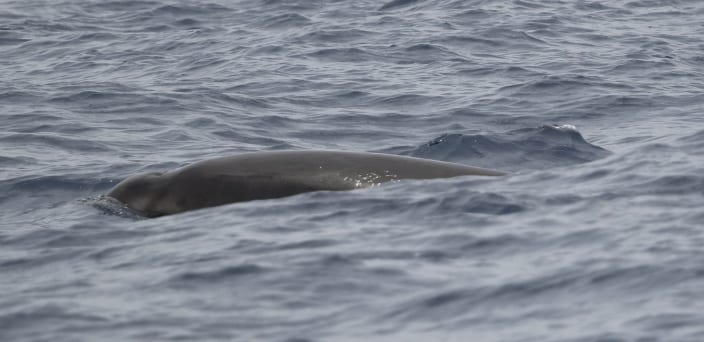
Unidentified (Gervais ?) Beaked Whale. Photo Simon Berrow/IWDG
The objectives of this survey were many; to try and locate and record humpback whales to see if they are from the Southern Hemisphere population; improve our knowledge of the whales and dolphins around the Cabo Verde archipeligo and heloration with ollabp train and build research capacity in Cabo Verde in collaboration with our colleagues here. Finally to promote Cabo Verde as a place to see, study and protect cetaceans in this still undiscovered environment.
We had great success, the good ship MakTub and skipper Eduard were superb, what a platform for living and studying from. What a great team of people to work with. The weather was kind. We got to survey the unknown waters off Fogo and Brava. We obtained images for photo-id from short-finned pilot whales and bottlenose dolphins for local research.
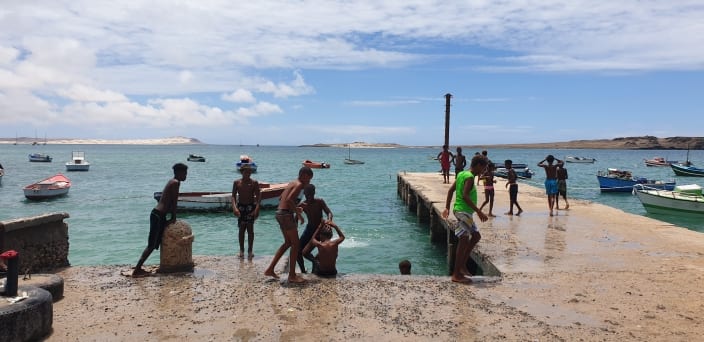
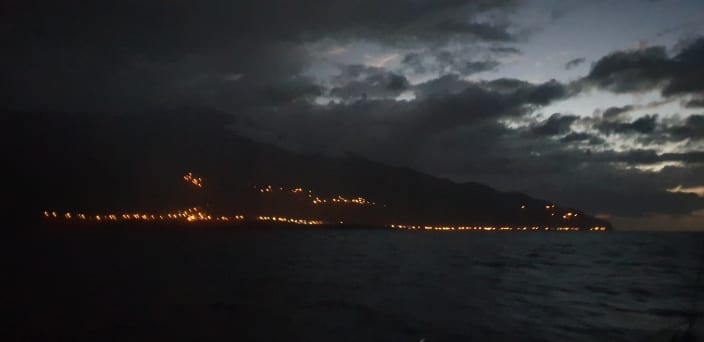
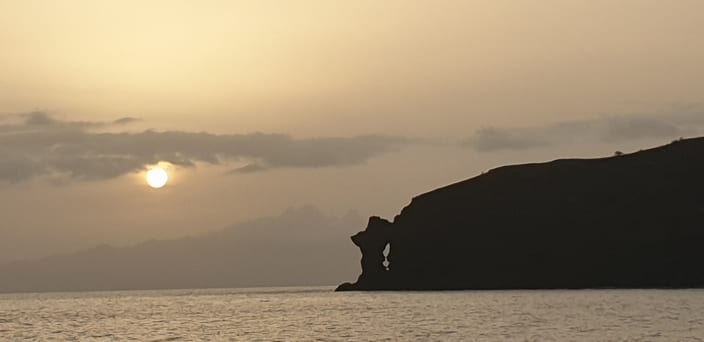
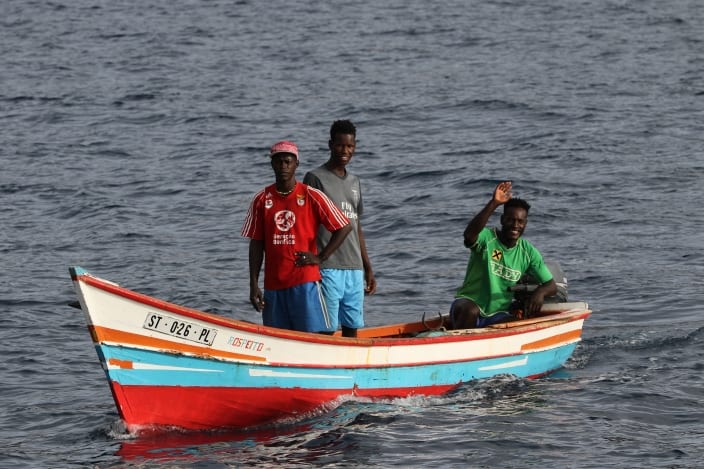
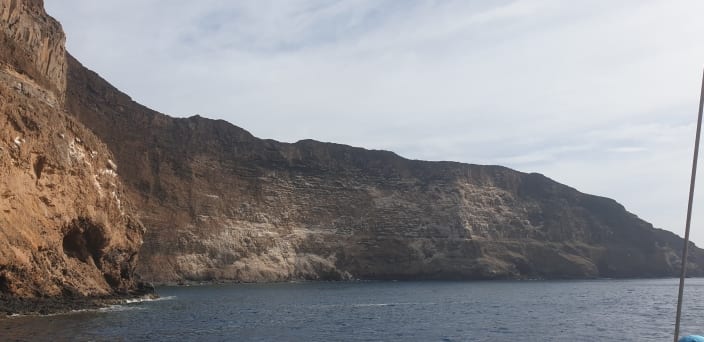
More importantly we have strengthened our research group, living and working together with new and old colleagues is fantastic and in a challenging environment when anything might turn up is truely the dream of a marine biologist. Big shout to Tony Whelan for driving us to share our experiences and excitement with those interested through video and social media and to Eduard for sharing his home (Maktub).
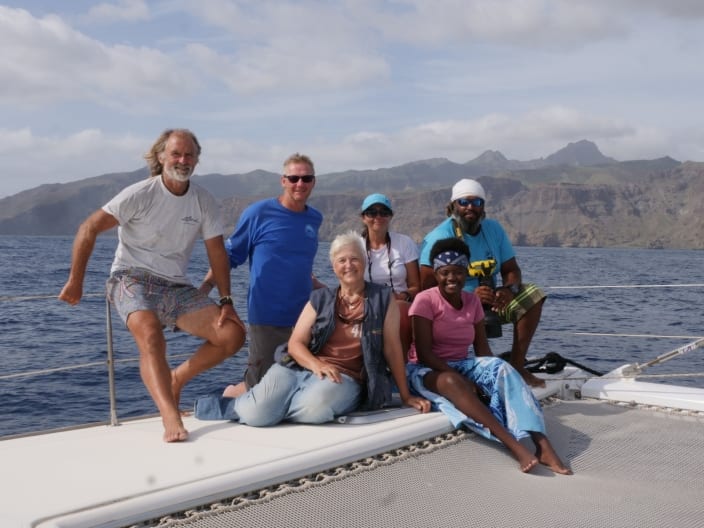
Eduard, Simon, Edita, Strava, Katelion and Beatrice. Photo: Tony Whelan
For more videos and images please go to:
https://web.facebook.com/IWDG-Cape-Verde-Humpback-Whale-Expeditions-491580284277939/?ref=bookmarks
3 September 2019
A long day from Sal Rei to Maio. Fish jumping, tuna, dorado, sailfish. A group of bottlenose dolphins (unusual for Cape Verde) and eventually a humpback whale. A small individual, fluking, but not singing. Success. It is most likely a southern hemisphere whale. we will share the image and see if it has been seen elsewhere.
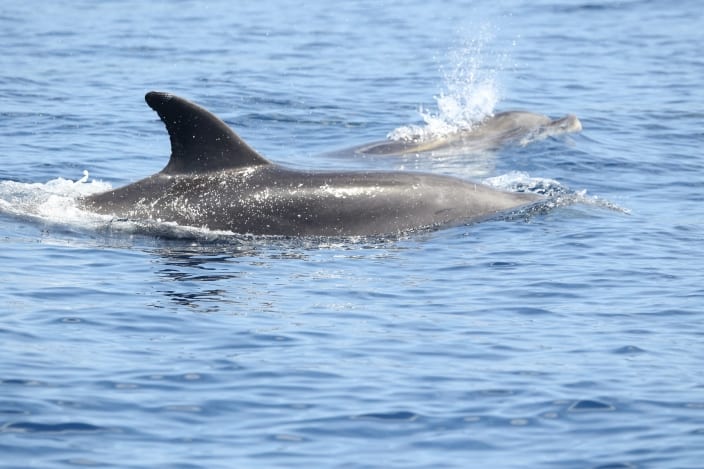
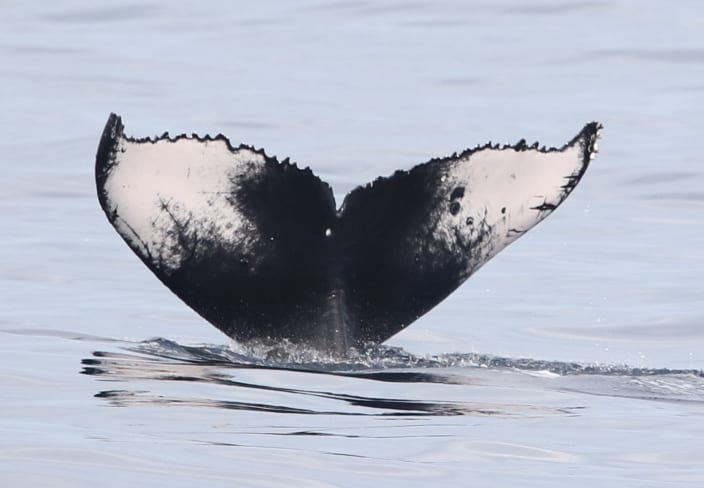
Follow the expedition on https://web.facebook.com/IWDG-Cape-Verde-Humpback-Whale-Expeditions-491580284277939/?ref=bookmarks
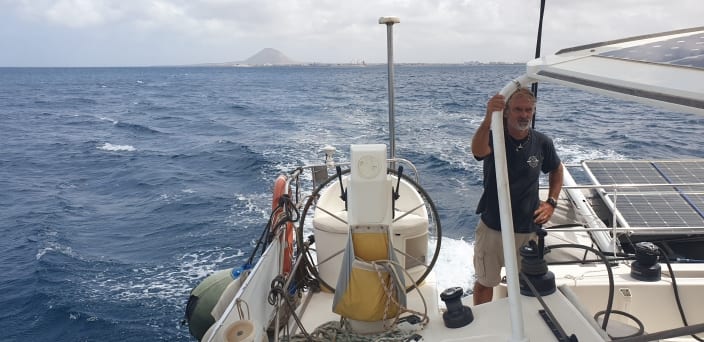
1 September 2019
After a long, mutli-delayed flights we arrived in Sal and joined MakTub on anchor in Palmeiro. Afte rsaying goodbye to Nuria who had been onboard for 7 weeks we headed on the short journet to Boavista. No sightings apart from flying fish and Cape Verde Shearwaters but as we reached Boavista the large cumulus nimbus clods gathered and it rained !
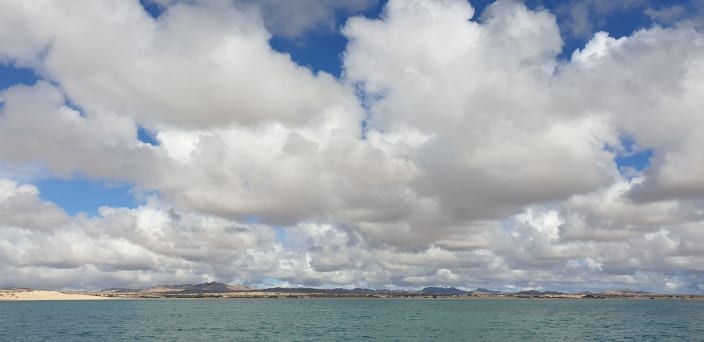
This might not seem very significant, but it hasnt rained on Boavista for nealy 3 years. Proper rain…. we might be heralded as gods, for bringing the rain with us. Imagine !
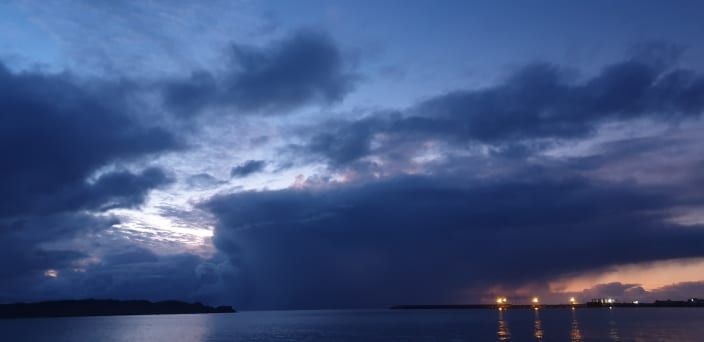
29 August 2019
The IWDG return to Cape Verde this September to continue their work on humpback whales.This is the eight expedition to this remote island archipelago off west Africa. An important element of this 2 week expedition is to help train local marine biologists in whale and dolphin survey and research techniques to empower them to take ownership of whale and dolphin conservation.
The IWDG established in April of this year that some humpback whales feeding in Irish waters at this time of year breed in Cape Verde during the boreal spring. In September 2014 the IWDG also recorded humpback whales in Cape Verde but this time they were not ones feeding in Ireland or the Northern Hemisphere but from the Southern Hemisphere. This was unique, which make Cape Verde the only country in the whole of the Atlantic Ocean that has two different populations of humpback whales breeding at the same location but six months apart. This expedition attempts to build on this pioneering work of 5 years ago.
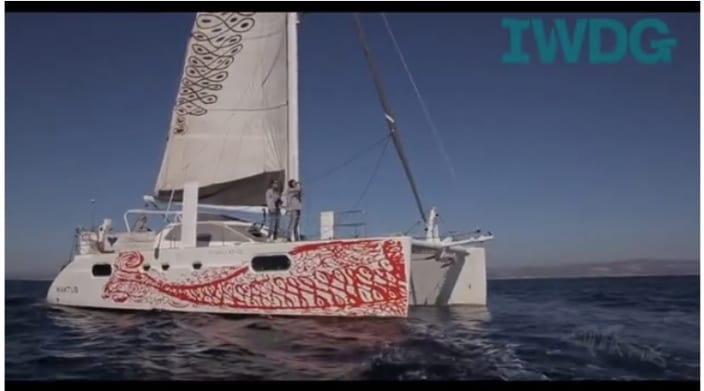
The IWDG are teaming up with BiosCV based in Boavista and ECOCV based in Santiago as well as students from the University of Cape Verde as part of this survey.


We are working in partnership with Edumaktub, who are providing a 47ft Lipari catamaran as a research platform. Edumaktub are based in southern Spain but have brought their research vessel to Cape Verde this summer (http://www.edmaktub.org/).
Follow our survey on facebook and twitter across all our partners digital platforms and a dedicated IWDG Facebook page
https://www.facebook.com/IWDG-Cape-Verde-Humpback-Whale-Expeditions-491580284277939/
and our partners:
http://www.bioscaboverde.com/home-en.php
https://www.facebook.com/IWDG-Cape-Verde-Humpback-Whale-Expeditions-491580284277939/
In the year that Ireland, through the Marine Institute, invited political representatives from 30 small island nations, to its Our Ocean Summit, flagship event for the marine sector, the IWDG are actually achieving this ambition by supporting local communities in west Africa through training and knowledge transfer.
This survey is funded by the 
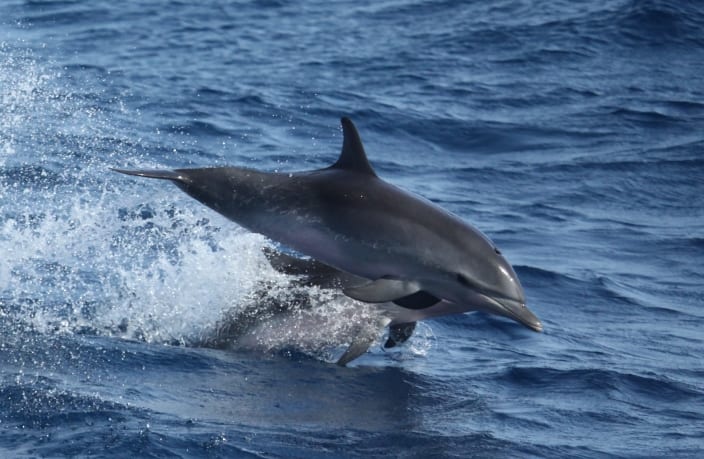 Spotted dolphins Photo: Simon Berrow/IWDG
Spotted dolphins Photo: Simon Berrow/IWDG

